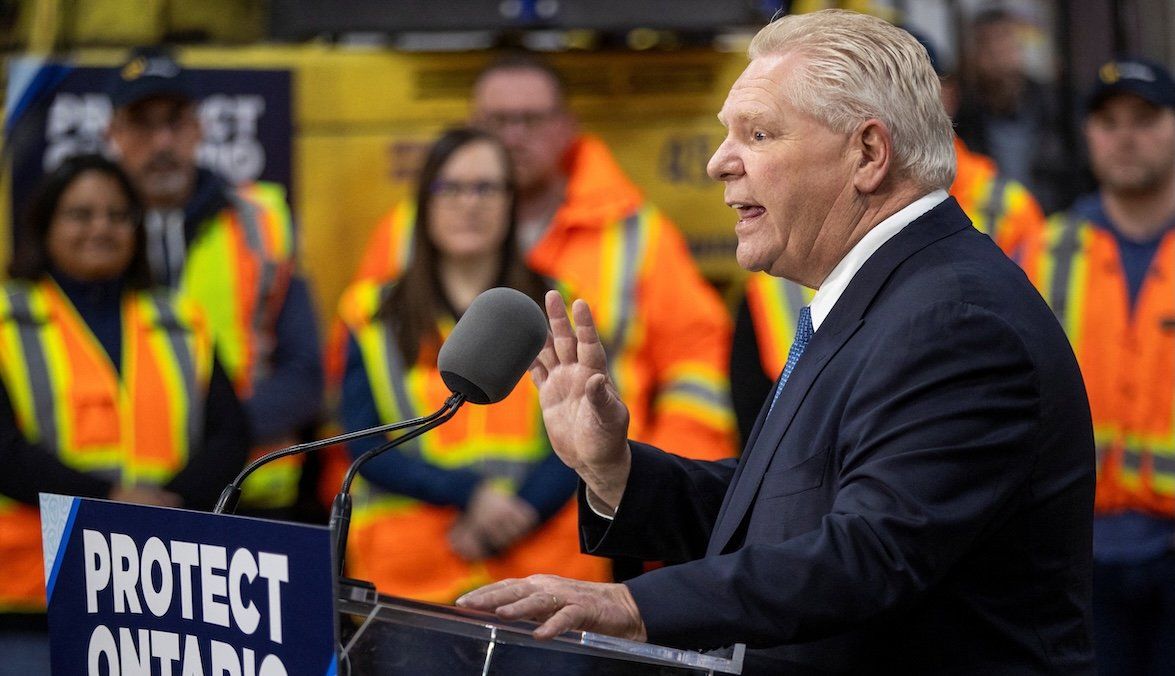Ontario Premier Doug Ford speaks during a campaign stop at Walker Construction in Niagara Falls, Ontario, Canada, on Jan. 31, 2025.
Ontario Premier Doug Ford, who is seeking a new mandate in an election later this month, has been forced to explain a pro-Trump comment captured by a hot mic.
Ford, a Progressive Conservative, liked Donald Trump until the US president threatened to impose 25% tariffs on Canada, which would wreck the US-dependent Ontario manufacturing industry. In the video clip filmed at a rally, Ford says, “On Election Day, was I happy this guy won? 100% I was. Then the guy pulled out the knife and f***ing yanked it in me.”
Premier of Canada’s biggest province since 2018, Ford called a snap election for Feb. 27, some 15 months earlier than necessary, saying he needed a mandate to stand up to Trump. This quick election will allow him to get a new mandate before a federal election that is likely to elect Conservative Pierre Poilievre. Ontario has a long tradition of voting differently at the provincial and federal levels.
Ontarians have embraced Ford’s tough-on-Trump message. One poll shows him with the biggest lead since the turn of the century.
He had been attacked by his Liberal and NDP rivals for the hot mic comment but the controversy is unlikely to hurt him electorally. Ontario voters know and like the larger-than-life Ford despite — or because of — his often brash but authentic approach to politics.